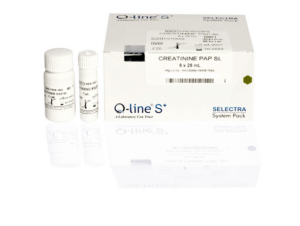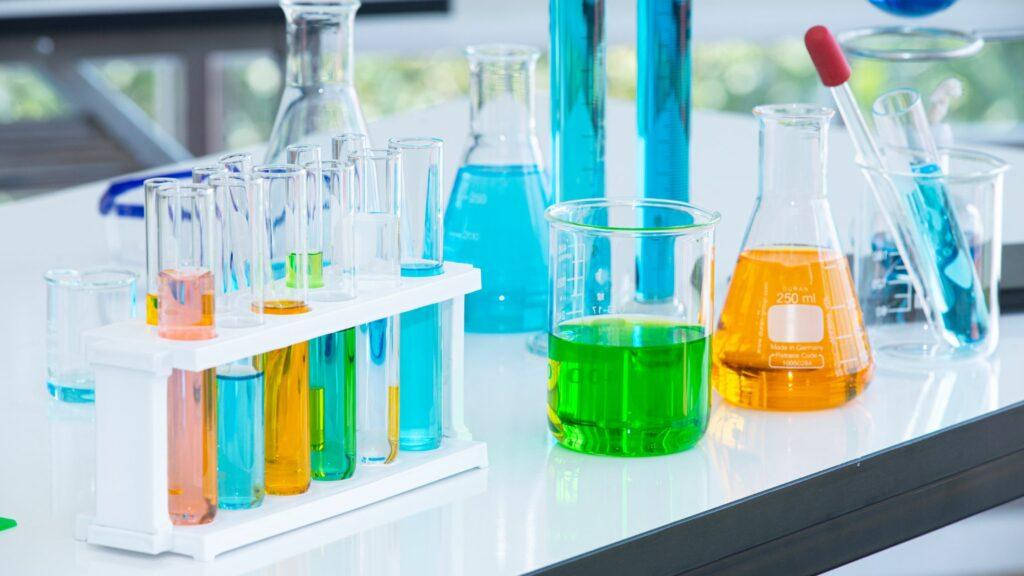This is a comprehensive blog that will immerse you in the captivating world of laboratory reagents and spare parts. Get ready for an exciting journey as we delve into the realm of biochemical, molecular, immunological, cell culture, diagnostic, analytical, organic, inorganic, and chromatography reagents. Discover the profound significance of these reagents and explore their wide-ranging applications in various scientific fields.
Join us as we unravel the secrets behind the crucial role laboratory reagents play in scientific breakthroughs. We’ll showcase their indispensable contribution to the advancement of biochemical research, molecular diagnostics, immunology studies, cell culture experiments, analytical techniques, and much more.
In this blog, we will explore the diverse types of laboratory spare parts and equipment, their significance in maintaining smooth scientific operations, and the best practices for sourcing, managing, and maintaining these critical elements. Join us as we delve into the intricacies of laboratory spare parts and equipment, uncover their essential role in scientific research, and provide insights into optimizing their performance for successful outcomes.
But that’s not all! We’re thrilled to introduce you to Medzell, an innovative B2B platform that is revolutionizing the promotion of Indian medical devices in emerging markets. With Medzell, you’ll gain access to reliable laboratory equipment suppliers, ensuring smooth and efficient operations in your scientific endeavors.
Stay tuned as we provide you with essential information about laboratory reagents & spare parts, their applications, and the importance of reliable spare parts. This blog will serve as your guide to navigating the intricate world of laboratory research, unlocking the potential for groundbreaking scientific discoveries.
Understanding Laboratory Reagents: Unveiling the Power of Scientific Tools
Laboratory reagents are essential substances used in various scientific disciplines including biochemistry, molecular biology, immunology, cell culture, diagnostics and analytical chemistry. By understanding the diverse applications of laboratory reagents, scientists can unlock scientific discoveries, develop new therapies, and advance our knowledge in various fields. The availability of reliable spare parts for laboratory equipment is also crucial for seamless and efficient research operations.
Different Types of Laboratory Reagents
Biochemical Reagents
Biochemical reagents are essential substances used in biochemical research to investigate and manipulate biological molecules and processes. These reagents are important in learning the structure and functioning of biomolecules. They play a vital role in gaining insights into the intricate workings of these biological molecules in our bodies. By using these reagents, we can uncover valuable information about the building blocks of life and unravel the complexities of biological processes. They enable researchers to explore the intricate pathways and mechanisms that govern cellular activities. Biochemical reagents encompass a wide range of compounds and solutions that are specifically designed for biochemical studies.
The availability and utilization of biochemical reagents empower researchers to unravel the intricate mechanisms underlying biological processes. By manipulating and studying biomolecules with these reagents, scientists gain insights into disease mechanisms, drug development, and the fundamental principles of life itself.
Molecular Reagents
Molecular reagents are substances used in the medical research field to study DNA, RNA and other molecules. These reagents play a vital role in unraveling the structure, function and expression of genes as well as investigating various genetic and genomic phenomena. These reagents help scientists to delve into the fundamental mechanisms of life leading to breakthroughs in areas like genetics, genomics and personalized medicine. Their usage facilitates a deeper understanding of how life works at a molecular level and drives progress in these important scientific fields. Molecular reagents encompass a wide range of compounds and solutions specifically designed for molecular biology experiments.
Molecular reagents enable researchers to explore the intricacies of genetic information, gene expression and molecular interactions. By utilizing these reagents scientists can unravel the complexities of biological processes understand disease mechanisms identify genetic variations and develop innovative molecular diagnostics and therapeutic approaches.
Immunological Reagents
Immunological reagents are substances used to study the immune system, pathogens and antigens. These reagents play a critical role in understanding the mechanisms of immune function developing diagnostic tests and designing therapeutic interventions. These reagents allow scientists to explore the immune system by studying immune cells, antibodies, cytokines and other crucial components. Their usage facilitates in-depth investigations into the functioning and interactions of these immune system elements, contributing to our understanding of immunity and potential advancements in immunology research. Immunological reagents encompass a wide range of compounds and solutions specifically designed for immunology experiments.
Immunological reagents help researchers to dissect the intricacies of the immune system study immune responses to various diseases and develop immunotherapies and vaccines. By utilizing these reagents, scientists can advance our understanding of immune function uncover new therapeutic targets and improve diagnostic capabilities in the field of immunology.
Cell Culture Reagents
Cell culture reagents are essential substances used in cell culture laboratories to support the growth, maintenance, and experimentation of cells in vitro (outside of their natural environment). These reagents provide the necessary nutrients and supplements for cells to survive and function efficiently in a laboratory setting. Cell culture reagents encompass a wide range of compounds and solutions specifically designed for cell culture experiments.
Proper use of cell culture reagents is critical to maintain cell viability, growth and functionality. Researchers must ensure that the reagents they use are of high quality, sterile and compatible with their specific cell types and experimental goals. Following good cell culture practices and employing appropriate reagents contribute to the success and reliability of cell-based experiments and advance our understanding of cellular behavior, disease mechanisms, and therapeutic development.
Diagnostic Reagents
Diagnostic reagents are critical substances used in medical and clinical laboratories for the detection and identification of diseases, pathogens, and biomarkers. These reagents play a crucial role in diagnostic testing enabling healthcare professionals to accurately diagnose and monitor various medical conditions assess patient health and guide treatment decisions. Diagnostic reagents are used in different diagnostic methods. Diagnostic reagents encompass a diverse array of compounds and solutions specifically designed for diagnostic testing.
Diagnostic reagents are indispensable tools in modern healthcare, enabling the early and accurate detection of diseases, monitoring of treatment responses, and improved patient care. These reagents facilitate timely diagnoses, assist in public health surveillance, and contribute to the development of personalized medicine approaches. Their proper use, quality control, and adherence to standardized protocols are essential for reliable and precise diagnostic testing.
Analytical Reagents
Analytical reagents are substances used to facilitate the detection, quantification and characterization of chemical components in various samples. These reagents are instrumental in analytical testing, allowing scientists to detect, quantify, and examine the properties of substances they are interested in. Their usage plays a critical role in enabling accurate and precise analysis, providing valuable insights into the presence, concentration, and characteristics of various substances. Analytical reagents encompass a diverse range of compounds and solutions specifically designed for analytical testing.
Analytical reagents are essential tools for scientists and analysts working in research laboratories, quality control laboratories, and environmental monitoring. They allow for accurate identification and characterization of substances in various fields such as pharmaceuticals, environmental analysis, food and beverage testing, forensic analysis and clinical diagnostics. The selection and use of appropriate analytical reagents are critical for achieving reliable and precise analytical results.
Organic Reagents
Organic reagents are substances composed primarily of carbon atoms and are widely used in organic chemistry for various synthetic reactions, functional group transformations, and organic compound analysis. These reagents are important tools for chemists to manipulate and modify organic molecules study their properties and synthesize new compounds. Organic reagents encompass a wide range of compounds specifically designed for organic chemistry applications.
Organic reagents enable chemists to perform a wide range of synthetic reactions, functional group manipulations, and compound analyses in organic chemistry. The selection of appropriate reagents, along with proper reaction conditions and techniques, is crucial for achieving desired outcomes in organic synthesis and analysis.
Inorganic Reagents
Inorganic reagents are substances composed primarily of elements other than carbon and are widely used in various branches of chemistry including inorganic chemistry, materials science and analytical chemistry. These reagents are essential in the synthesis, characterization and analysis of inorganic compounds and materials. They play a pivotal role in enabling scientists to create understand and study the properties of various inorganic substances and materials contributing to advancements in fields such as materials science, chemistry and nanotechnology. Inorganic reagents encompass a diverse range of compounds specifically designed for inorganic chemistry applications.
Inorganic reagents are fundamental tools in the study of inorganic chemistry, materials science and analytical chemistry. They enable the synthesis, manipulation, and analysis of inorganic compounds, coordination complexes, and materials. Proper selection and use of inorganic reagents, along with appropriate safety precautions, are crucial for achieving accurate and reliable results in various chemical processes and analyses.
Chromatography Reagents
Chromatography reagents are substances specifically designed for use in chromatographic techniques, which are widely employed in analytical chemistry for separating, identifying, and quantifying components within a mixture. These reagents play a crucial role in enhancing the efficiency, selectivity and accuracy of chromatographic separations.
Chromatography reagents consist of a wide range of compounds and solutions designed specifically for various types of chromatography techniques. Each type of chromatography requires specific reagents that are carefully selected and tailored to ensure optimal separation and analysis of different types of samples.
Chromatography reagents are essential for achieving accurate and reliable separations in chromatographic techniques. Their selection depends on the specific chromatographic method, analyte properties, and desired separation objectives. Proper handling, storage, and use of chromatography reagents are critical for obtaining reproducible and high-quality chromatographic results.
Laboratory Spare Parts: Ensuring Smooth Scientific Operations and Optimal Performance
In the world of scientific research and experimentation laboratory spare parts and equipment are fundamental components that enable scientists and researchers to conduct accurate and reliable experiments. These essential elements encompass a wide range of items, from spare parts that replace worn-out or damaged components to complete laboratory instruments that facilitate precise measurements and data collection.
Laboratory spare parts are critical components that contribute to the seamless functioning of scientific equipment. They come in various types, each serving a specific purpose in maintaining and optimizing equipment performance. Replacement parts, for instance, are designed to replace damaged or malfunctioning components in laboratory instruments, ensuring minimal downtime and uninterrupted scientific operations. These parts include motors, pumps, valves, sensors, filters, and more, tailored to the specific requirements of different equipment models.
Accessories are another integral aspect of laboratory spare parts and equipment. These additional components enhance the functionality and versatility of scientific instruments, expanding their range of applications and capabilities. Examples of accessories include specialized attachments, adapters, holders, modules, or software upgrades. By utilizing these accessories, scientists can adapt their equipment to meet the unique demands of their experiments and optimize their research outcomes.
In addition to spare parts and accessories, laboratory equipment itself plays a crucial role in scientific operations. It includes microscopes, centrifuges, spectrophotometers, incubators, balances and chromatography systems. Each spare parts and equipment type serves a specific purpose and is designed to meet the diverse needs of various scientific disciplines.
To ensure the smooth functioning and longevity of laboratory equipment, proper maintenance and proactive management are essential. This includes regular calibration, cleaning, and servicing, as well as the timely replacement of consumable spare parts. Consumables, such as filters, vials, gaskets, syringe barrels, and other disposable components, need periodic replenishment to maintain the accuracy and reliability of experimental data.
Moreover, sourcing laboratory spare parts and equipment from reliable suppliers is crucial. Reputable suppliers offer genuine, high-quality components and instruments that are compatible with specific models, adhere to industry standards, and undergo rigorous testing. By choosing reliable suppliers, scientists can minimize the risk of equipment failures, optimize performance, and ensure the integrity of their experimental results.
Uses & Purposes of Different Types of Laboratory Reagents & Spare Parts
- Explore Selection of Precision Pipettes
Accurate liquid handling is essential in laboratory experiments, and our precision pipettes are designed to meet the highest standards. Improve the reliability of scientific results with our precise and ergonomic pipettes available in a variety of volumes to suit your specific needs. - Discover High-Speed Centrifuges for Efficient Sample Separation
Sample separation is a critical step in many laboratory workflows, and our high-speed centrifuges are here to optimize this process. With advanced technology and innovative features, these centrifuges maximize productivity, save time, and ensure reliable separation of your samples. - Enhance Scientific Observations with Microscopes
In the pursuit of scientific discoveries, observing intricate details is crucial. Our microscopes offer exceptional image quality, ergonomic designs, and advanced imaging techniques. Uncover the hidden secrets of your samples and unlock new insights with our cutting-edge microscopy solutions. - Achieve Precise Measurements and Data Analysis with Reliable Spectrophotometers
Accurate measurements and precise data analysis are fundamental in scientific research. Our reliable spectrophotometers provide the accuracy and reproducibility you need for various applications, including DNA quantification, protein analysis, and enzyme kinetics. Ensure the reliability of your laboratory experiments with our trusted spectrophotometry solutions. - Ensure Effective Sterilization with High-Performance Autoclaves
Maintaining aseptic conditions in your laboratory is paramount to avoid contamination and ensure reliable results. Our high-performance autoclaves offer efficient sterilization of laboratory equipment and instruments, safeguarding the integrity of your experiments and promoting a sterile working environment. - Create Ideal Growth Environments with Advanced Incubators
Cell culture experiments require precise control of growth conditions, and our advanced incubators are designed to meet those needs. Create ideal environments for cell cultures, maximize cell viability, and accelerate your biological research with our reliable and feature-rich incubators. - Safeguard Samples with Reliable Freezers
Preserving the integrity of your valuable samples is essential. Our reliable freezers offer optimal storage conditions, temperature uniformity, and advanced safety features to protect your research investment. Rest assured that your samples are safe and ready for future analysis. - Accelerate Experiments with High-Performance Shakers
Precise mixing and controlled incubation are critical in molecular biology research, and our high-performance shakers deliver just that. With customizable shaking modes, temperature control, and intuitive interfaces, our shakers accelerate your experiments, ensuring reliable and reproducible results.
Laboratory Reagents & Spare Parts from Leading Indian Manufacturers
Rapid Reagents
Rapid Reagents is a laboratory reagent manufactured by Agappe Diagnostics Limited, a top manufacturer and global supplier of high-quality laboratory reagents and spare parts in India. Rapid Reagents are designed to facilitate rapid tests using open reagents such as Dengue-NS1, Dengue-Combi, and COVID-19 N-Antigen. These reagents come in a convenient set of 25 packs, making them suitable for various laboratory testing needs.
Q-line Reagents

Q-line Reagents, manufactured by Q-line Biotech Private Limited in India, are known for providing exceptional results in laboratory testing. As a global supplier, Q-line Biotech offers a comprehensive range of laboratory reagents designed for use with biochemistry analyzers, electrolyte analyzers, and protein extraction systems. The Q-line S+ reagents and Q-line Platinum reagents are particularly compatible with the Q-line range of analyzers, ensuring accurate and reliable analysis of various parameters. The extensive list of parameters includes GGT (Gamma glutamyl transferase), Albumin, ALP (Alkaline phosphatase), ALT (Alanine aminotransferase), Amylase, AST (Aspartate aminotransferase), Bilirubin (Total & Direct), Calcium, Chloride, Cholesterol, Creatinine (Jaffe’), Creatinine (PAP), Glucose, HDL-Cholesterol, Lactate dehydrogenase (LDH), LDL-Cholesterol, Lipase, Magnesium, Phosphorus, Total Protein, Triglycerides, Urea, Uric acid, ACE, ADA, D-dimer, HbA1c Direct, Homocysteine, Procalcitonin, and Vitamin-D.
Medzell: Pioneering the Future of B2B Medical Device Promotion
As we conclude this captivating journey through laboratory reagents & spare parts, We hope this comprehensive blog has enriched your understanding of the significance and applications of various laboratory reagents & spare parts. Additionally, we introduced you to Medzell, a futuristic B2B platform dedicated to promoting Indian medical devices in emerging markets.
Whether you’re unraveling genetic mysteries with molecular reagents or optimizing sample separation with high-speed centrifuges. Medzell provides a wide range of laboratory equipment and spare parts from reputable suppliers. Embrace the opportunities that lie ahead, unlock new discoveries, and contribute to scientific breakthroughs with the support of Medzell.
Conclusion
In conclusion, laboratory reagents and spare parts are the unsung heroes of scientific progress. Their diverse types and crucial roles underscore their importance in accurate research, experimentation, and analysis. From enabling precise measurements to supporting complex procedures, these components form the backbone of laboratories worldwide, driving innovation and advancing our understanding of the natural world. As technology and research evolve, so too will the significance of these indispensable tools, fostering new breakthroughs and discoveries on the horizon.


